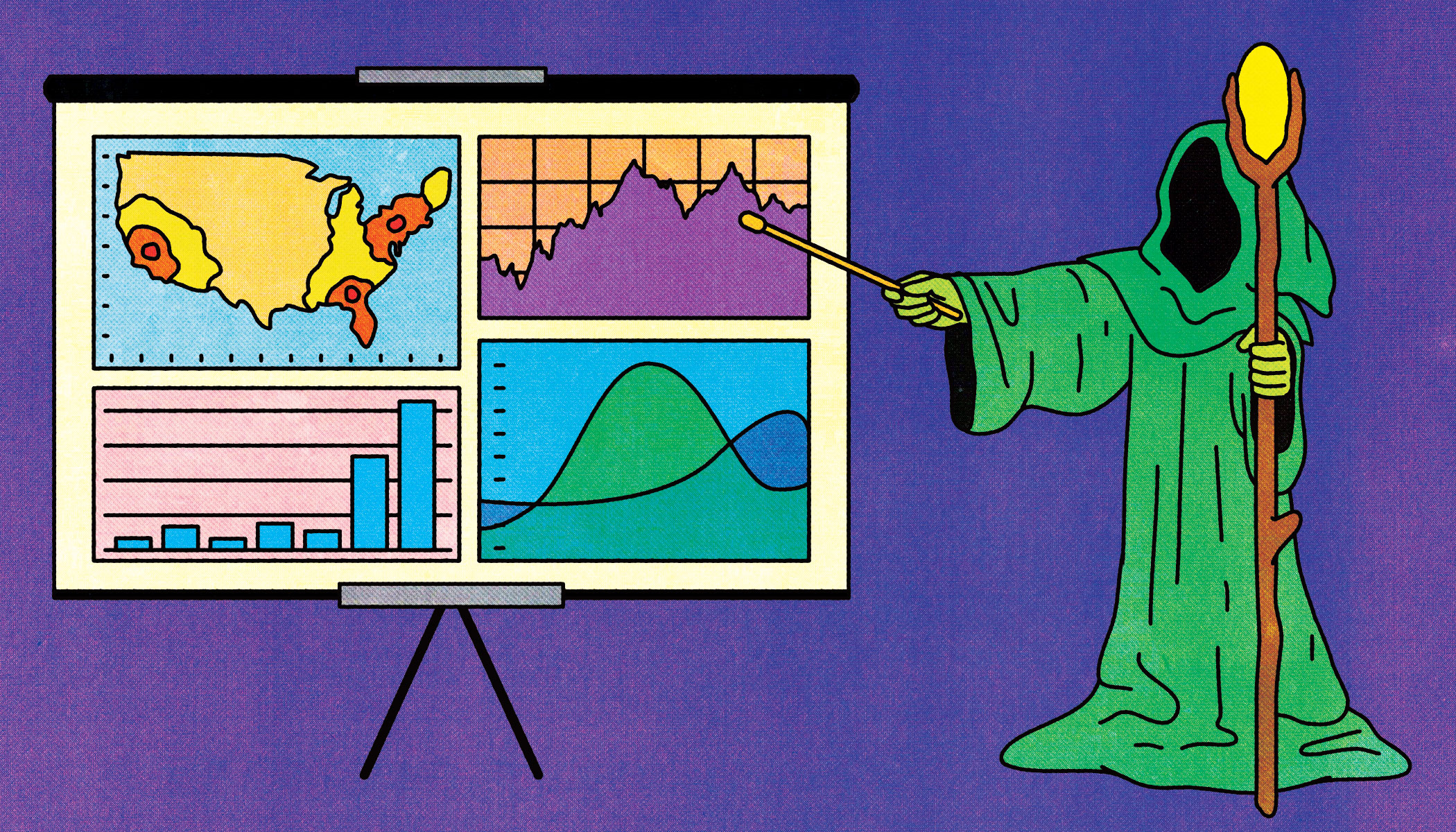Job titles of the future: Pandemic oracle
Biological risk consultants forecast the impacts and opportunities of epidemics.

Officially, Conor Browne is a biorisk consultant. Based in Belfast, Northern Ireland, he has advanced degrees in security studies and medical and business ethics, along with United Nations certifications in counterterrorism and conflict resolution. He’s worked on teams with NATO’s Science for Peace and Security Programme and with the UN High Commissioner for Refugees, analyzing how diseases affect migration and border security.
Early in the emergence of SARS-CoV-2, international energy conglomerates seeking expert guidance on navigating the potential turmoil in markets and transportation became his main clients. Having studied the 2002 SARS outbreak, he predicted the exponential spread of the new airborne virus. He forecast the epidemic’s broadscale impact and its implications for business so accurately that he has come to be seen as a pandemic oracle.
Browne produces independent research reports and works directly with companies of all sizes. One of his niches is consulting on new diagnostic tools—for example, in his work with RAIsonance, a startup using machine learning to analyze cough sounds correlated with tuberculosis and covid-19. For multinational corporations, he models threats such as the possibility of avian influenza spreading from human to human. He builds most- and least-likely scenarios for how the global business community might react to an H5N1 outbreak in China or the US. “I never want to be right,” he says of worst-case predictions.
Navigating uncertainty
Biorisk consultants are often trained in fields related to epidemiology, security, and counterterrorism. Browne also studied psychology to understand how humans respond to disaster. In times of increasing geopolitical volatility, he says, biomedical risk assessment must include sociopolitical forecasting.
Demand for this type of crisis planning exploded in the corporate world in the aftermath of 9/11. Executives learned to create contingency plans for loss of personnel and infrastructure as a result of terrorism, pandemics, and natural disasters. And resilience planning proved crucial early in the covid-19 pandemic, as business leaders were forced to adjust to supply chain disruptions and the realities of remote work.
Network effects
By adding nuanced qualitative analysis to hard data, Browne creates proprietary guidance that clients can act on. “I give businesses an idea of what is coming, and what they do with that information is up to them,” he says. “I basically tell the future.”
Britta Shoot is a freelance journalist focusing on pandemics, protests, and how people occupy space.
Deep Dive
Business
This giant microwave may change the future of war
The defense tech startup Epirus has developed a cutting-edge, cost-efficient drone zapper that’s sparking the interest of the US military. Now the company has to deliver.
The latest threat from the rise of Chinese manufacturing
MIT economist David Autor first documented the loss of millions of jobs to Chinese imports a decade ago. Now he sees an even more serious danger if the US loses the race for advanced manufacturing.
Is this the electric grid of the future?
In Nebraska, a publicly owned utility deftly tackles the challenges of delivering on reliability, affordability, and sustainability.
The Bank Secrecy Act is failing everyone. It’s time to rethink financial surveillance.
The Bank Secrecy Act allows for the bulk collection of American's financial data. It's time to narrow its scope.
Stay connected
Get the latest updates from
MIT Technology Review
Discover special offers, top stories, upcoming events, and more.